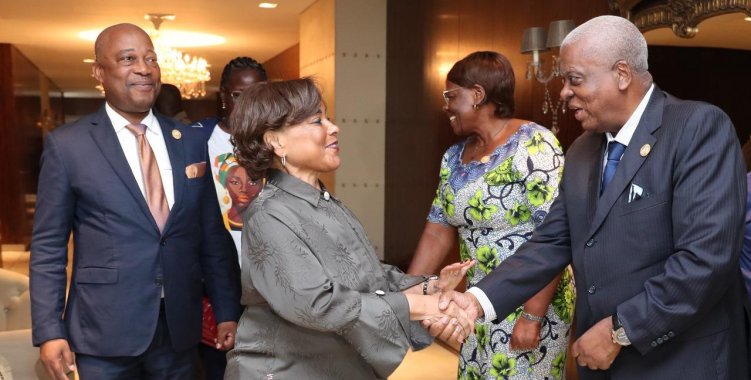"Angola is playing its role, Angola is paying attention. We are a country with 35 million inhabitants, after Brazil, we are the second most populous country in the CPLP (...). We have responsibilities internally, regionally, and internationally, and Angola is creating the mechanisms to effectively comply with the agreements and discussions we have been having with our partners and fellow citizens in the member countries," the president of the parliament, Carolina Cerqueira, told Lusa.
She was speaking on the sidelines of the 14th Parliamentary Assembly of the Community of Portuguese-Speaking Countries (AP-CPLP) in Maputo, where she immediately praised the efforts of the member countries to ensure the mobility of people and goods within the Portuguese-speaking world.
"We know that our countries have fought for this ease, for the exchange of goods, the free movement of people and goods, and we hope that from this Maputo meeting we can effectively produce sustained proposals that respond to the policies of each of the member countries," the president of the parliament added.
Carolina Cerqueira stated that the CPLP is concerned that "principles and agreements between states be respected," referring to the need to ensure control over the circulation of smuggled goods within the Portuguese-speaking world, noting that such illegal activities can "harm the order of each member country."
"We are noticing that there are certain restrictions on movement within the CPLP and difficulties created by the circulation of means and products that are being used in smuggling," she noted, calling for greater attention to the need to ensure control over the circulation of illegal goods and urging the need to protect the interests of each member state.
The outgoing presidency of the AP-CPLP, led by Equatorial Guinea, previously called for the implementation of the mobility agreement between Portuguese-speaking countries, acknowledging the current difficulties.
"Free movement within the CPLP continues to be a challenge, as mobility is not facilitated for everyone, only for holders of diplomatic and official passports (...) we recommend the effective implementation of the mobility agreement signed on July 17, 2021, in Angola," said Teresa Efua Asangono, president of the AP-CPLP and president of the Senate of Equatorial Guinea.
The mobility agreement within the CPLP was signed on July 17, 2021, in Luanda, by the community's heads of state and government, but only a few countries have moved forward with its implementation.
"It hinders the movement of students, cultural agents, businesspeople, and others. It is important to note that the difficulties these groups face in traveling between countries are recognized," explained the president of the Senate of Equatorial Guinea, whose term as president of the AP-CPLP ends this Monday, having been assumed by Mozambique as of Tuesday.
Mozambique will assume the rotating presidency of the AP-CPLP at the 14th meeting, taking place at the Joaquim Chissano Conference Center in Maputo, succeeding Equatorial Guinea, for a two-year term focused on peace and inclusion.
Founded in 1996, the CPLP includes nine countries: Angola, Brazil, Cape Verde, Guinea-Bissau, Equatorial Guinea, Mozambique, Portugal, São Tomé and Príncipe, and Timor-Leste.







